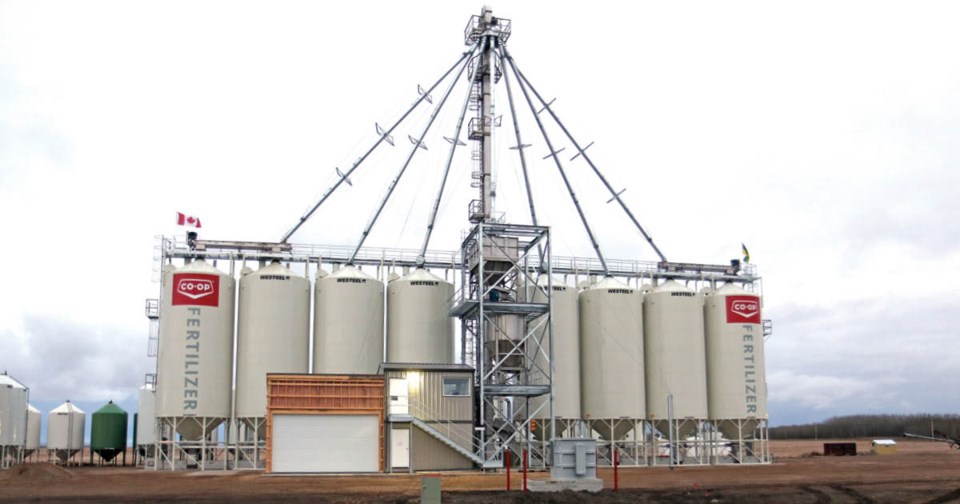LAKE LENORE — The Lake Lenore Agro Co-op is putting the finishing touches on their 1,600 metric tonne $2.5 million dry fertilizer plant.
Tom Viczko, Lake Lenore Agro Co-op’s general manager, said that with a 16 ton scale and blender, it is expected to triple the speed and capacity from what they had a mere year ago.
“It’s pretty much a state of the art delivery and storage plant and it’s going to provide producers in the area close and easy access to the latest cutting edge fertilizer products,” Viczko said.
“With the demand for fertilizer and more technologically advanced products growing year after year the investment makes Lake Lenore Ag sustainable going into the future.”
Lake Lenore Agro Co-op’s old plant was deconstructed in June to replace it with the modern upgrade on the site. The new facility is expected to last at least two decades.
Viczko said the decision to upgrade was largely focused on acquiring more storage space, speeding up the plant, and a whole new blending system.
“In that blending system, what we do is it’s impregnating the macronutrient fertilizers that we were presently using and adding additional micronutrients to better tailor the product for the individual producers to use.”
With the addition of the blending system and the nitrogen stabilizers, Viczko said it allows “a whole other avenue for the producer” as well as additional avenues for the Co-op.
In the new plant, a receiving bucket elevator will replace the former method of filling the bins with an auger and tractor. Long-term, Viczko said the lack of setup is expected to save the Co-op money.
“It’s basically drive up the driveway, up the load and virtually no setup.”
The plant was built with future expansion in mind, allowing the Co-op the option to later decide to add more storage space or a second delivery system.
For the Co-op members who aren’t necessarily producers, Viczko said it’s worth getting excited over just for the investment into the community’s future and economy.
“Even if you’re not that interested and you’re not buying fertilizer at all and you’re still a member of the Co-op, that’s still good because it’s going to be sustainable and be here for a long time in the future,” Viczko said. “I think all members will look at it as a pretty sound investment.”




